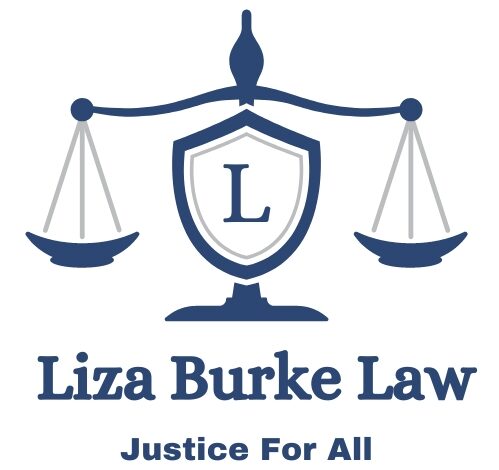Canadian law, much like any legal system, can often appear complex and confusing to the uninitiated. The intricacies of statutes, regulations, and legal terminology can leave individuals feeling overwhelmed and unsure of how to navigate legal matters. However, armed with a clear understanding and the right resources, one can demystify Canadian law and gain confidence in dealing with legal issues. In this article, we will delve into an in-depth analysis of Canadian law and provide practical advice to help individuals navigate the legal landscape effectively. Additionally, we will introduce a valuable resource, the “Justice Laws Website,” which serves as a comprehensive platform for accessing Canadian federal laws.
Understanding Canadian Law
Canadian law is rooted in a rich history, blending influences from both British common law and French civil law due to Canada’s colonial past. The Canadian legal system is based on the principle of the “rule of law,” ensuring that everyone, regardless of their status or position, is subject to and equal before the law. The country’s legal system is composed of federal and provincial laws, each with its own jurisdiction and areas of authority.
The Constitution Act of 1867 divides legislative powers between the federal and provincial governments. While federal laws cover areas such as criminal law, immigration, and intellectual property, provincial laws govern matters like property, education, and health care. This division can sometimes lead to complexity when determining which level of government holds authority in a particular situation.
Navigating Canadian Law: Practical Tips
- Seek Professional Assistance: When facing legal issues, it’s wise to seek professional legal advice. Lawyers are trained to interpret the law and provide tailored guidance based on individual circumstances. Whether it’s a personal injury case, family law matter, or business dispute, having a legal expert by your side can significantly improve your chances of a favorable outcome.
- Understand Your Rights: As a Canadian citizen, you have certain rights protected by the Canadian Charter of Rights and Freedoms, which is part of the Constitution Act, 1982. These rights include freedom of expression, freedom of religion, and the right to a fair trial. Understanding these rights can help you navigate situations where your rights may be at stake.
- Research and Educate Yourself: While legal matters can be complex, gaining a basic understanding of relevant laws can be empowering. Online resources, legal guides, and reputable books can provide you with insights into the legal issues you’re dealing with. It’s important, however, to recognize the limitations of self-education and still consider seeking legal advice when needed.
- Alternative Dispute Resolution: Not all legal matters need to be resolved in a courtroom. Alternative dispute resolution methods, such as mediation and arbitration, can often lead to quicker and more amicable solutions. These methods allow parties to work together to find mutually beneficial resolutions, saving time, money, and emotional stress.
- Utilize Online Resources: In the digital age, accessing legal information has become more convenient. The Justice Laws Website (https://laws.justice.gc.ca/eng/) is an invaluable resource for individuals seeking federal laws in Canada. The website provides a user-friendly platform for accessing and researching Canadian statutes and regulations, making it an essential tool for anyone interested in understanding the legal framework.
Introducing the Justice Laws Website
The Justice Laws Website serves as a central repository for federal laws in Canada. This online platform is maintained by the Department of Justice and provides comprehensive access to a wide range of legal information. Here’s how the website can be a game-changer for demystifying Canadian law:
- User-Friendly Interface: The website features an intuitive interface that allows users to easily search for specific laws, regulations, and legal documents. The search functionality is designed to provide quick and accurate results, saving users valuable time.
- Updated and Reliable Content: The Justice Laws Website is regularly updated to reflect the latest changes in federal laws. This ensures that users have access to the most up-to-date legal information, which is crucial for making informed decisions.
- Annotated Statutes: The website provides annotations alongside statutes, offering additional context and explanations for legal terms and concepts. This feature is immensely valuable for individuals who are not legal experts but still need to understand the implications of specific laws.
- Consolidated Statutes: The website offers consolidated versions of statutes, which integrate all amendments into the original text. This format makes it easier to understand the current state of a law without needing to cross-reference multiple documents.
- Educational Resources: The Justice Laws Website also offers educational resources, including guides on how to use the platform effectively, glossaries of legal terms, and information on the legislative process in Canada.
Conclusion
Demystifying Canadian law is an achievable goal, and it’s crucial for individuals to arm themselves with the right tools and knowledge. By understanding the fundamental principles of the legal system, seeking professional guidance when needed, and utilizing resources like the Justice Laws Website, individuals can navigate legal complexities with confidence. The Canadian legal landscape, while intricate, is designed to uphold justice and ensure that everyone has access to their rights under the law. Remember, whether facing a personal legal issue or simply looking to expand your legal knowledge, taking proactive steps to educate yourself can make a significant difference in your ability to engage effectively with Canadian law.


